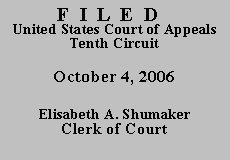

Petitioner Ab'dullah Lamar Rashid Muhammad, a prisoner in custody
of the State of Oklahoma proceeding pro se, appeals the dismissal of his 42 U.S.C. § 1983 civil rights action. We exercise jurisdiction pursuant to 28 U.S.C. § 1291 and affirm.
Mr. Muhammad filed suit with a fellow prisoner, Michael Horton, on October 26, 2004, alleging: 1) defendants violated their Eighth Amendment rights by subjecting them to cruel and unusual punishment, demonstrating deliberate indifference to their safety needs, and endangering their lives by housing them with other inmates who were allegedly members of the Universal Aryan Brotherhood ("UAB") and the Indian Brotherhood ("IBH"); 2) defendants violated their First, Fourth, Fifth, Sixth, and Eighth Amendment rights by placing them in disciplinary segregation; and 3) defendants violated their First, Fourth, Eighth, and Fourteenth Amendment rights by retaliating against plaintiffs. The defendants filed a Motion to Dismiss/Motion for Summary Judgment, which the court treated as a motion for summary judgment since it considered matters outside the court record. The district court granted the defendants' motion and dismissed the case for failure to exhaust administrative remedies pursuant to the Prison Litigation Reform Act. Only Mr. Muhammad appeals.
We review de novo a dismissal for failure to exhaust administrative remedies. Jernigan v. Stuchell, 304 F.3d 1030, 1032 (10th Cir. 2002) (citation omitted). The Prison Litigation Reform Act ("PLRA") provides: "No action shall be brought with respect to prison conditions under section 1983 of this title, or any other Federal law, by a prisoner confined in any jail, prison, or other correctional facility until such administrative remedies as are available are exhausted." 42 U.S.C. § 1997e(a). "An inmate who begins the grievance process but does not complete it is barred from pursuing a § 1983 claim under PLRA for failure to exhaust his administrative remedies." Jernigan, 304 F.3d at 1032. Similarly, a prisoner does not exhaust his administrative remedies when he fails to properly complete the grievance process or correct deficiencies in his grievances. Id.
We have reviewed the complete record on appeal and Mr. Muhammad's filings with this court and conclude that the district court properly dismissed Mr. Muhammad's claim for failure to exhaust. Although Mr. Muhammad filed several written complaints relating to his claims, he failed to properly follow the prison's grievance procedure and to correct deficiencies in his grievances, even when notified by prison staff and given an opportunity to cure.
The inmate grievance process requires an inmate to attempt to informally resolve an issue before filing a written complaint. If informal resolution is unsuccessful, an inmate may file a Request to Staff ("RTS") form to the appropriate staff member detailing his complaint. If an inmate is dissatisfied with the response to the RTS, he may file an Inmate/Offender Grievance Report Form ("grievance"), but he must attach a copy of the previously submitted RTS to the grievance. If the inmate never receives a response to the RTS, the inmate may file a grievance noting and providing evidence of the ignored RTS. If a grievance is not responded to or resolved to an inmate's satisfaction, the inmate may file an appeal to the administrative review authority. The administrative review process is exhausted only after the inmate has taken all these steps.
Mr. Muhammad filed several grievances that were returned to him for failure to attach a previously submitted RTS. The returned grievances noted the deficiency and directed Mr. Muhammad to the policy outlining appropriate grievance procedure. Mr. Muhammad argues on appeal that he could not attach the required materials because staff ignored these RTS complaints. However, Mr. Muhammad failed to provide any evidence that he ever attempted to cure this deficiency and resubmit the grievances or to follow appropriate procedure and file a grievance noting that the submitted RTS forms could not be attached because they had been ignored. Finally, Mr. Muhammad failed to provide any evidence that he ever appealed to the appropriate administrative review authority. Because Mr. Muhammad failed to properly follow the prison's grievance procedure as to any of his claims, he has not exhausted his administrative remedies and the district court properly dismissed the suit.
Based on the foregoing, we AFFIRM the district court's order.
Entered for the Court
Mary Beck Briscoe
Circuit Judge
*. This order and judgment is not binding precedent, except under the doctrines of law of the case, res judicata, and collateral estoppel. The court generally disfavors the citation of orders and judgments; nevertheless, an order and judgment may be cited under the terms and conditions of 10th Cir. R. 36.3.